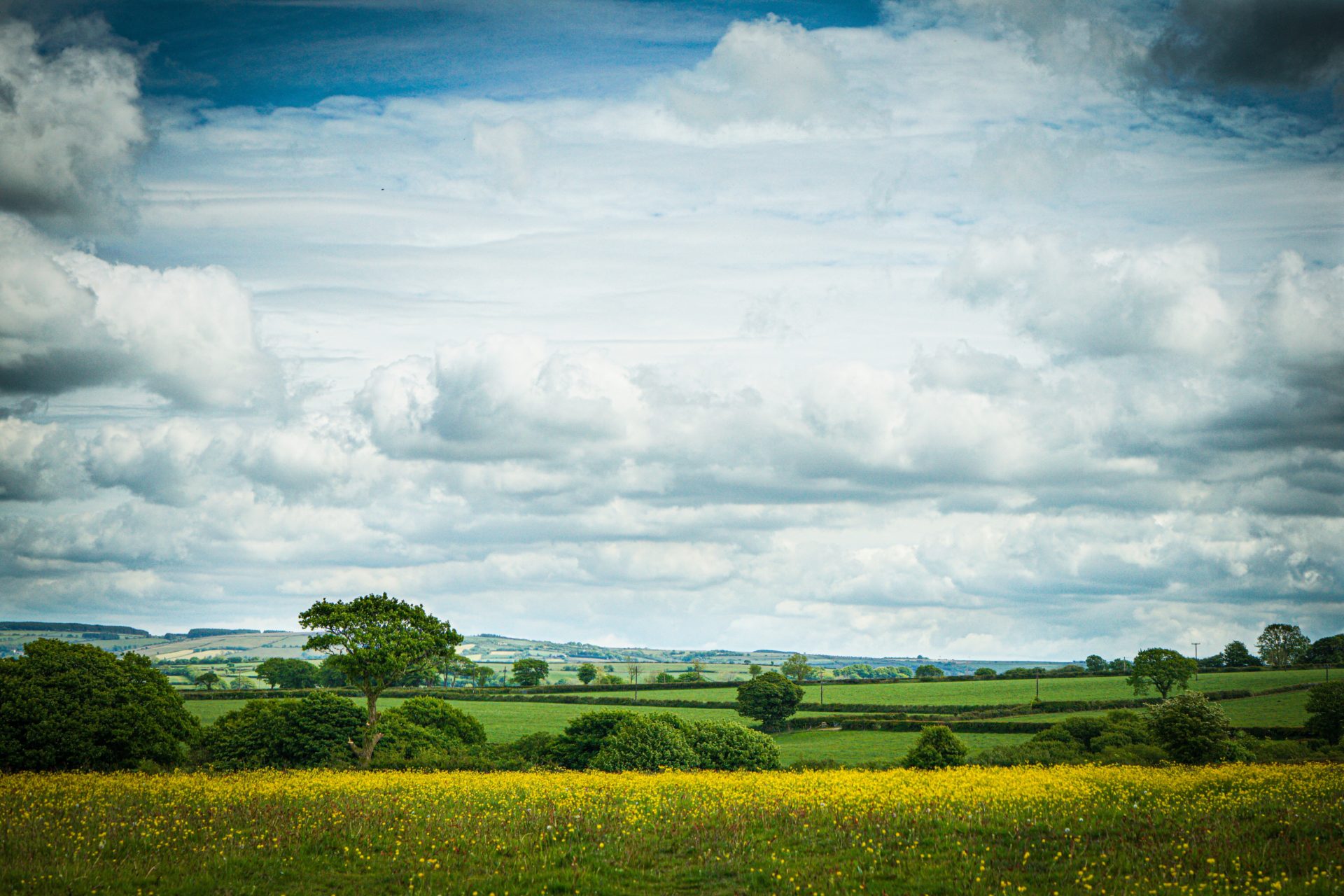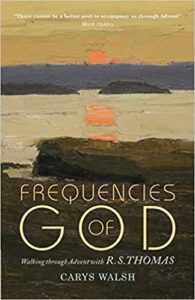
Photo by Avi Theret on Unsplash
The eternity that awaits you: Reading R.S. Thomas in Advent
Recognized as one of the leading poets of modern Wales and one of the finest religious poets in the English language, he published some 25 individual collections of poems, as well as several volumes of prose.
 A delightful introduction to Thomas during the season of Advent is “Frequencies of God: Walking through Advent with R.S. Thomas,” by Carys Walsh.
A delightful introduction to Thomas during the season of Advent is “Frequencies of God: Walking through Advent with R.S. Thomas,” by Carys Walsh.
Walsh, curate at All Saints Kettering and previously a tutor in Christian Spirituality at St. Mellitus College, London, offers 28 reflections on Thomas’s poetry organized according to themes to be explored each week of Advent: waiting, accepting, journeying, and birthing. To this sequence she adds ‘seeing’ to provide focus for a final week of reflections beyond Advent.
Included is one of Thomas’ best-known poems, “The Bright Field,” which focuses on a moment—or moments—of revelation.
In “The Bright Field,” Thomas writes of seeing the sun break through to illuminate a small field only to forget about it as he goes on his way. “But that was the pearl of great price,” Thomas writes, “the one field that had the treasure in it.”
Life is not hurrying
on to a receding future, nor hankering after
an imagined past. It is the turning
aside like Moses to the miracle
of the lit bush, to a brightness
that seemed as transitory as your youth
once, but is the eternity that awaits you.[i]
When Moses encountered the burning bush, he was in the wilderness, living life in between—in between having fled Egypt and going back to lead the Israelites out of bondage in that land.
Moses was in what Fr. Richard Rohr calls a liminal space. “Liminal space is an inner state and sometimes an outer situation where we can begin to think and act in new ways,” Rohr writes. “It is where we are betwixt and between, having left one room or stage of life but not yet entered the next.”
Most people would have walked right by that bush. Perhaps others did before Moses passed by. A burning bush in a dry, deserted place is not that unusual. Most people would not give it a second thought. But Moses was curious. He turned aside. Moses took the time to look twice.
When the Lord saw that he had turned aside to see, God called to him out of the bush, “Moses, Moses!” (Exodus 3:4)
God noticed that Moses had paid attention to the situation. God noticed Moses saw something odd and went to investigate further.
In that moment, God understood that here is someone I can work with, someone who will consider the oppression of my people, just as I have considered it. Here is someone who will empathize with their pain just as I empathize with their pain, someone who will desire liberation for them just as I desire liberation for them. Here is someone who will lead not just because he understands the big picture but because he also sees the details and takes note of things others miss.
Life is not hurrying on to a receding future, nor hankering after an imagined past. Life is turning aside like Moses to the miracle of the lit bush. What a difference that moment made in the life of Moses and in the life of the people of Israel. What a difference such moments can make in our lives and in the lives of those around us.
This season of Advent, look for the miracle of the lit bush, the revelation of God in your midst. It might not happen in a bright field, as it did for R.S. Thomas, though it could. Perhaps for you it will happen on a crowded sidewalk, or in a conference room, or while you’re waiting in the checkout line at the grocery store. But I hope at some point you will see the brightness of which Thomas wrote, and that Moses experienced, the brightness that is the eternity that awaits you.
The views expressed are those of the author and not necessarily those of American Baptist Home Mission Societies.



